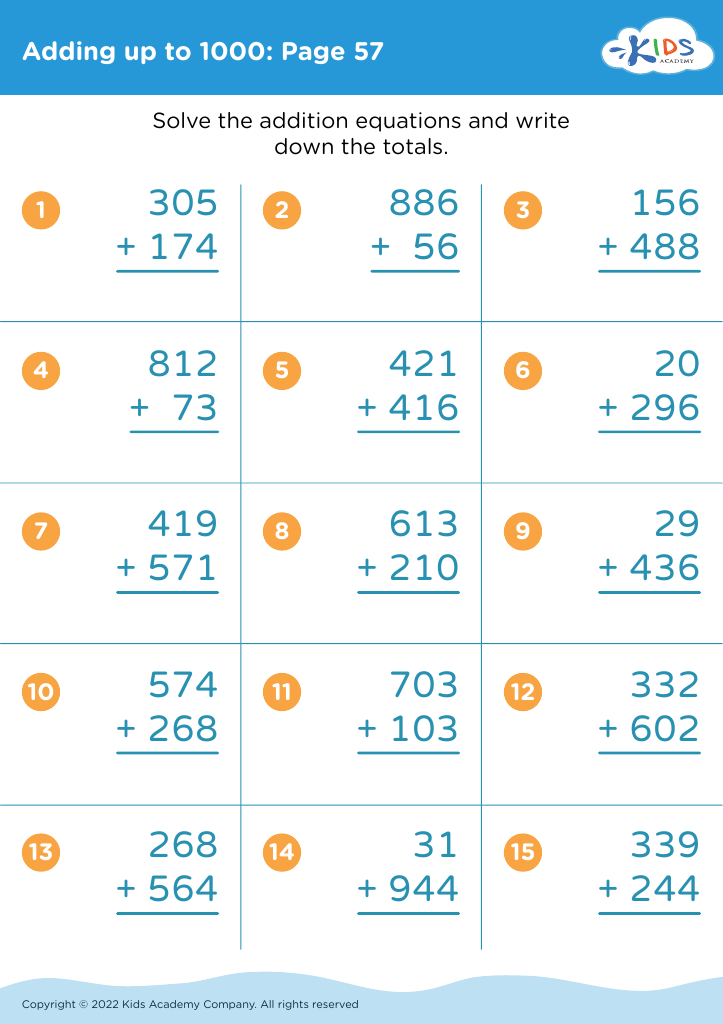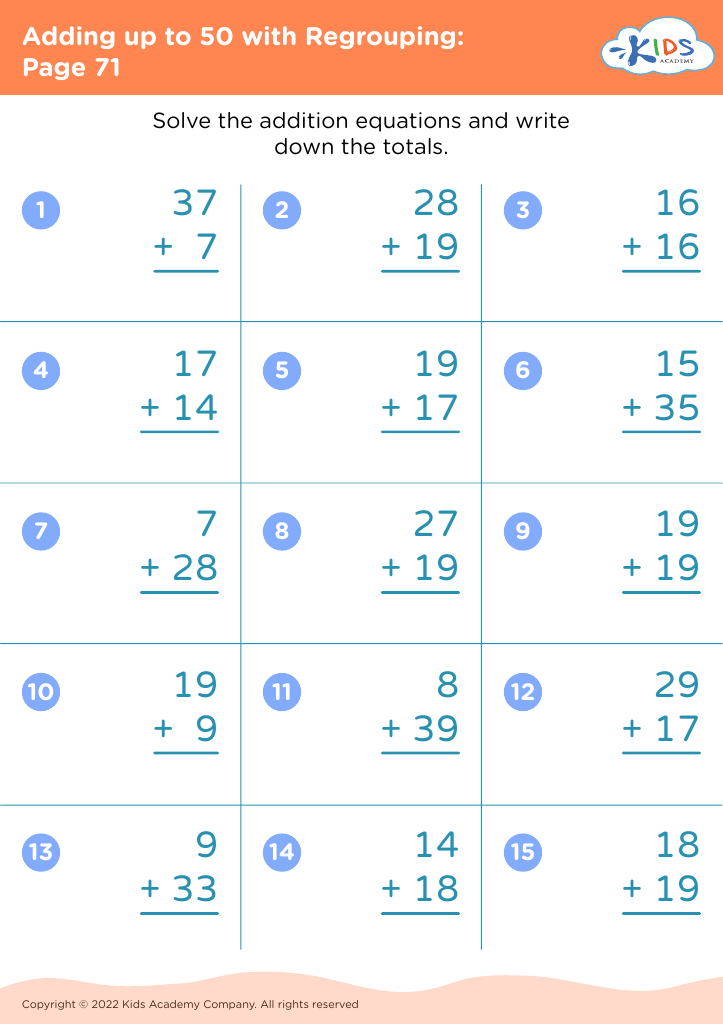Motor skills development Addition & Subtraction Worksheets for Ages 6-7
4 filtered results
-
From - To
Enhance your child's learning journey with our Motor Skills Development Addition & Subtraction Worksheets tailored for ages 6-7. These engaging worksheets combine math practice with essential fine motor skills, promoting hand-eye coordination and dexterity. Each worksheet features colorful visuals and interactive elements, making learning both fun and effective. Designed to support early learners in mastering basic addition and subtraction, these resources ensure that children not only improve their math skills but also develop vital motor abilities. Perfect for homeschool settings or classroom activities, our worksheets offer an enjoyable way to build confidence and competence in young mathematicians. Get started today!
Motor skills development and the understanding of addition and subtraction are crucial for children aged 6-7, as they are foundational elements in their overall growth and academic success. Parents and teachers should care about this development because refined motor skills not only enhance a child's ability to write neatly and perform basic tasks but also boost their confidence and independence. Proficient fine motor skills are essential for holding pencils, using scissors, and manipulating classroom materials effectively—all vital for active engagement in learning activities.
On the cognitive side, addition and subtraction introduce children to fundamental mathematical concepts. Mastery of these operations fosters critical thinking and problem-solving skills. At ages 6-7, children start to make connections between numbers and learn to manipulate them, setting the groundwork for more complex mathematical concepts in the future. Integrating motor skill activities, such as using counters or drawing shapes, with math lessons reinforces their understanding and retention.
Furthermore, parents and teachers play key roles in creating engaging learning environments. Demonstrating the excitement in math and providing opportunities to practice motor skills ensures children are equipped for success both academically and in their day-to-day interactions. Supporting these developmental areas nurtures well-rounded, confident learners.

























